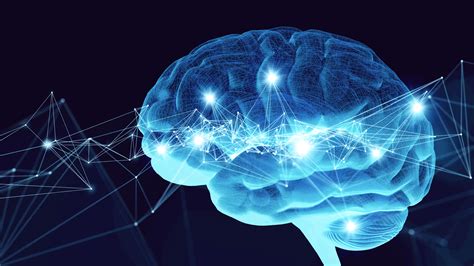The human mind has long been a source of fascination and intrigue. As we strive to understand the complex workings of the brain, the field of cognitive neuroscience has emerged as a key area of study. In this blog post, we will delve into the mysteries of the mind and explore the world of cognitive neuroscience programs in top US universities.
From understanding the intricacies of the human mind to uncovering the latest advancements in the field, cognitive neuroscience programs offer students an exciting and dynamic educational experience. We will discuss what cognitive neuroscience programs entail, highlight some of the top universities offering these programs, and provide insights on how to choose the right program for your academic and career goals. Additionally, we will explore the curriculum, research opportunities, internships, and career prospects associated with a degree in cognitive neuroscience.
Join us as we take a closer look at the fascinating world of cognitive neuroscience and the exciting advancements and opportunities that await future cognitive neuroscientists.
Table of Contents
Understanding the human mind through cognitive neuroscience
Understanding the human mind through cognitive neuroscience involves delving into the complex workings of the brain and how it relates to human behavior, thoughts, and emotions. By utilizing various scientific methods and techniques, cognitive neuroscientists seek to unravel the mysteries of the mind and gain a deeper understanding of what makes us who we are.
Through the study of cognitive neuroscience, researchers aim to uncover the underlying neural mechanisms that govern cognition, perception, and decision-making. This interdisciplinary field draws upon principles from psychology, biology, and other related disciplines to provide insight into the inner workings of the human brain.
Moreover, cognitive neuroscience also explores the impact of neurological disorders and injuries on cognitive function, leading to advancements in the diagnosis and treatment of conditions such as Alzheimer’s disease, stroke, and traumatic brain injury. By gaining a better understanding of the brain’s structure and function, researchers and practitioners are better equipped to address the challenges of neurological disorders and improve the quality of life for affected individuals.
Ultimately, the study of cognitive neuroscience holds the key to unlocking the mysteries of the human mind and has the potential to revolutionize our understanding of the brain and behavior.
What are cognitive neuroscience programs?
Cognitive neuroscience programs are academic programs that focus on the study of the biological processes underlying human cognition, with a specific emphasis on the neural substrates of mental processes. These programs integrate knowledge from psychology, neuroscience, biology, and computer science to understand how the brain enables the mind to function.
Students in cognitive neuroscience programs are exposed to a wide range of courses covering topics such as sensory and motor systems, attention, memory, language, decision-making, and emotion. They also learn about the methods and techniques used in neuroimaging, electrophysiology, and computational modeling to investigate cognitive processes.
Graduates from cognitive neuroscience programs have a solid foundation in both the theoretical and practical aspects of cognitive neuroscience, allowing them to pursue careers in research, academia, healthcare, technology, and more. The interdisciplinary nature of these programs equips students with a diverse skill set that is highly valued in the job market.
Overall, cognitive neuroscience programs offer a comprehensive and in-depth exploration of the relationship between the brain and the mind, preparing students to make meaningful contributions to the field of cognitive neuroscience and beyond.
Top US universities offering cognitive neuroscience programs
When it comes to pursuing a degree in cognitive neuroscience, it’s important to choose the right university that offers a comprehensive program with ample opportunities for hands-on learning, research, and practical experience. In the United States, there are several top-tier universities known for their excellent cognitive neuroscience programs.
One such university is Harvard University, which is renowned for its cutting-edge research and comprehensive curriculum in cognitive neuroscience. With access to state-of-the-art facilities and top-notch faculty, students at Harvard University can immerse themselves in the study of the human mind and brain.
Another top university offering cognitive neuroscience programs is Stanford University. With a strong focus on interdisciplinary collaboration and innovative research, Stanford provides students with a well-rounded education that prepares them for a successful career in the field of cognitive neuroscience.
The University of California, Berkeley is also a leading institution for cognitive neuroscience programs. With a diverse and dynamic environment, UC Berkeley offers students the chance to engage in groundbreaking research and gain practical experience through internships and experiential learning opportunities.
How to choose the right cognitive neuroscience program
Choosing the right cognitive neuroscience program is a crucial decision for aspiring students in this field. Research the universities and colleges that offer cognitive neuroscience programs and evaluate their curriculum and courses. It is important to look for a program that aligns with your career goals and aspirations. Consider the faculty and their expertise in the field, as well as any research opportunities they may offer.
Another important factor to consider is the resources available at the institution, such as labs and equipment for conducting experiments and research. Also, look into the internship and experiential learning opportunities available through the program, as these can provide valuable hands-on experience in the field of cognitive neuroscience.
Furthermore, it is essential to consider the career prospects associated with the program. Look into the employment rate of graduates and the companies and institutions they are employed by. This can give you a better understanding of the professional outcomes associated with the program.
Ultimately, the right cognitive neuroscience program for you will be one that provides a well-rounded education, hands-on experience, and opportunities for growth in the field. Take the time to thoroughly research and evaluate your options to ensure you make the best choice for your future career in cognitive neuroscience.
Curriculum and courses in cognitive neuroscience programs
When considering pursuing a degree in cognitive neuroscience, it’s essential to have a clear understanding of the curriculum and courses offered in the program. A typical curriculum in a cognitive neuroscience program includes a combination of core courses, electives, and research opportunities. Core courses often cover foundational topics such as neurobiology, cognitive psychology, and research methods in neuroscience. These courses provide students with a comprehensive understanding of the fundamentals of the field and serve as a strong foundation for more advanced coursework.
Electives in a cognitive neuroscience program allow students to tailor their education to their specific interests and career goals. These courses may include specialized topics such as brain imaging, psychopharmacology, or neuroethics. By taking electives, students can delve deeper into areas of cognitive neuroscience that align with their passions and aspirations, ultimately helping them to develop expertise in their chosen area of study.
Additionally, research opportunities are a crucial component of many cognitive neuroscience programs. These opportunities may include lab work, independent research projects, or internships with industry leaders. Engaging in research allows students to apply their theoretical knowledge to practical contexts, gain valuable hands-on experience, and contribute to the advancement of the field through their own discoveries and insights.
Overall, the curriculum and courses in a cognitive neuroscience program are designed to provide students with a well-rounded education that encompasses both theoretical learning and practical application. By completing the core courses, exploring electives, and engaging in research, students can develop a comprehensive understanding of cognitive neuroscience and prepare themselves for successful careers in the field.
Research opportunities in cognitive neuroscience programs
Research opportunities in cognitive neuroscience programs can be the perfect way for students to gain practical experience and contribute to the field’s body of knowledge. Students in these programs have the chance to work closely with faculty on cutting-edge research projects, gaining valuable insights and skills that can benefit them in their future careers.
Many cognitive neuroscience programs offer opportunities for students to participate in independent research projects or assist faculty members with their research. This hands-on experience allows students to apply the theoretical knowledge they’ve gained in the classroom and develop a deeper understanding of the nuances and complexities of cognitive processes.
Additionally, some cognitive neuroscience programs may provide students with the chance to collaborate with industry partners or other academic institutions, giving them exposure to different research methodologies and approaches. This can be invaluable for students who are considering pursuing graduate studies or entering the workforce after completing their program.
Overall, research opportunities in cognitive neuroscience programs are essential for students to develop the critical thinking, analytical, and problem-solving skills needed to thrive in the field of cognitive neuroscience. By actively engaging in research, students can make meaningful contributions to the advancement of our understanding of the human mind and brain.
Internships and experiential learning in cognitive neuroscience
Internships and experiential learning opportunities are essential components of any cognitive neuroscience program. These hands-on experiences allow students to apply their classroom knowledge in real-world settings, gaining valuable practical skills and insights into the field.
Participating in internships can provide students with the chance to work alongside experienced professionals in research labs, clinical settings, or industry organizations. This exposure can help students develop a deeper understanding of the practical applications of cognitive neuroscience and make connections that may be beneficial for future career opportunities.
Experiential learning opportunities such as research projects, practicums, or fieldwork can also be integrated into cognitive neuroscience programs. These experiences often involve a high level of mentorship and hands-on training, allowing students to engage in meaningful, in-depth projects that contribute to their skill development and understanding of the field.
By actively participating in internships and experiential learning opportunities, students can gain a competitive edge in the job market, as employers often value practical experience in addition to academic qualifications. These experiences can also help students clarify their career interests and goals within the diverse field of cognitive neuroscience.
Career prospects with a degree in cognitive neuroscience
Graduating with a degree in cognitive neuroscience opens the doors to a wide range of career opportunities in both the academic and industry sectors. Professionals with a background in this field can find employment in research, academia, healthcare, and technology, among others.
One potential career path for graduates in cognitive neuroscience is to become a research scientist, working in universities, research institutions, or private laboratories. These professionals study the neural mechanisms underlying human cognition, behavior, and emotion, and contribute to the advancement of knowledge in the field.
Another option is to pursue a career in clinical neuropsychology, where professionals assess and treat patients with cognitive and behavioral problems resulting from brain injury, neurodegenerative diseases, or other neurological conditions. This rewarding career path allows individuals to make a tangible impact on the lives of others.
Furthermore, graduates with a degree in cognitive neuroscience can also explore opportunities in the tech industry, applying their understanding of the human mind to roles in user experience research, human-computer interaction, and product design. These individuals contribute to the development of innovative technologies that enhance user engagement and satisfaction.
Prominent cognitive neuroscientists in the field
When it comes to groundbreaking work in the field of cognitive neuroscience, several prominent figures have made significant contributions that have shaped the way we understand the human mind. One of these figures is Michael Gazzaniga, who is known for his research on split-brain patients and the lateralization of brain function. His work has had a profound impact on our understanding of how the brain processes information and controls behavior.
Another influential cognitive neuroscientist is Antonio Damasio, whose work on the relationship between emotions, decision-making, and the brain has been instrumental in shaping our understanding of human consciousness. His research has laid the groundwork for the integration of emotions and cognition in the study of the human mind.
Elkhonon Goldberg is another important figure in the field, known for his work on hemispheric specialization and the role of the prefrontal cortex in cognitive functions. His research has significantly contributed to our understanding of the neural basis of cognitive processes and the mechanisms underlying higher-order thinking.
Lastly, Lisa Feldman Barrett has made significant contributions to our understanding of the relationship between the brain and emotions. Her research on the theory of constructed emotion has challenged traditional views on the nature of emotions and has paved the way for a more comprehensive understanding of how the brain generates emotional experiences.
Emerging trends and advancements in cognitive neuroscience
In recent years, there have been several exciting emerging trends and advancements in the field of cognitive neuroscience. One of the most promising developments is the use of neuroimaging techniques such as functional magnetic resonance imaging (fMRI) and electroencephalography (EEG) to study the inner workings of the human brain. These techniques have allowed researchers to gain unprecedented insights into the neural basis of cognition and behavior.
Another prominent trend is the growing emphasis on multidisciplinary research collaborations in cognitive neuroscience. As our understanding of the human brain becomes more complex, researchers from diverse backgrounds such as psychology, biology, computer science, and even philosophy are coming together to tackle complex questions about the mind and brain.
Advancements in computational modeling and machine learning have also revolutionized the field of cognitive neuroscience. These tools allow researchers to analyze vast amounts of data and identify complex patterns in neural activity, leading to new insights into the nature of cognition.
Finally, the integration of virtual reality (VR) and augmented reality (AR) technologies into cognitive neuroscience research has opened up new possibilities for studying human behavior and brain function in immersive, realistic environments. These technologies hold great promise for advancing our understanding of the brain and its role in cognition and perception.






